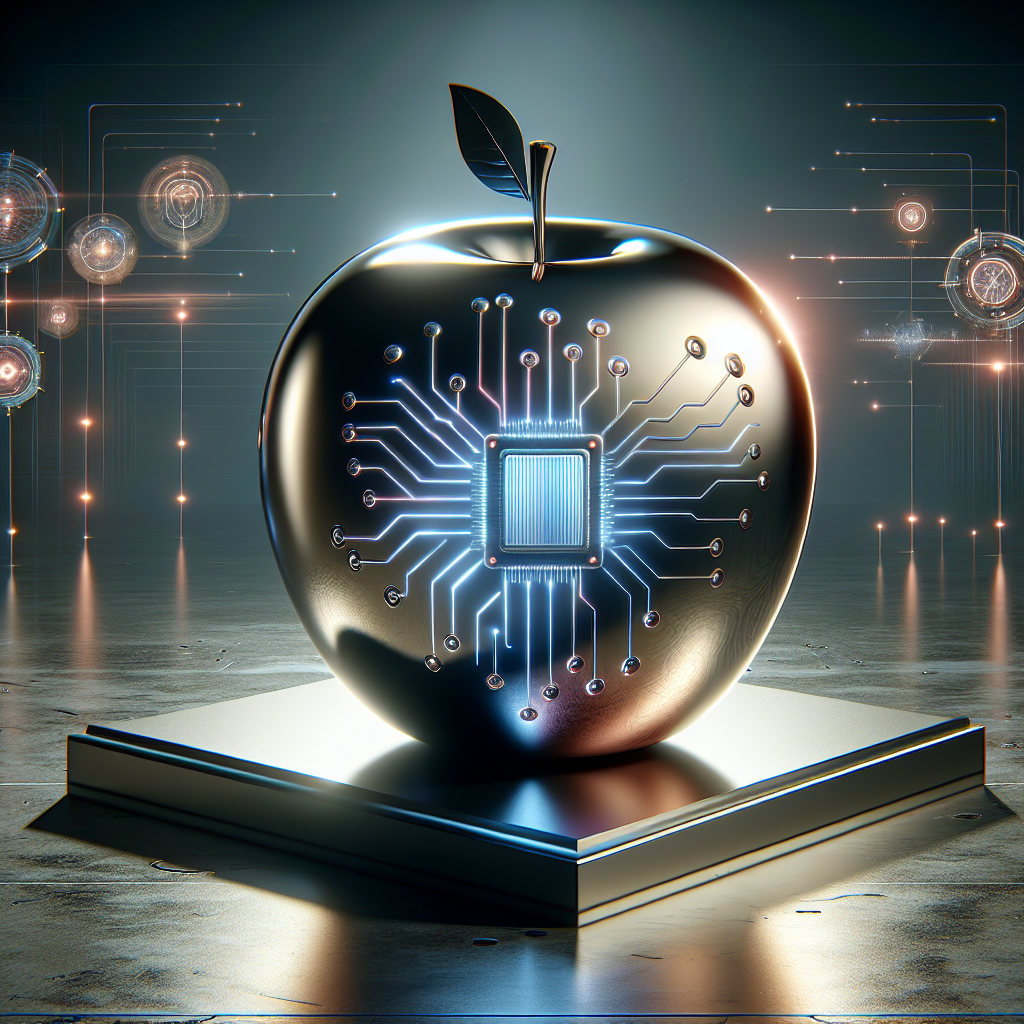Apple AI: A Paradigm Shift or Just Another Blip on the Radar?
In the ever-evolving tech sphere, certain names resonate with innovation, swaying the pendulum of the industry's direction with every move they make. Apple Inc., a titan in technology, known for its sleek designs and user-centric ecosystem, is once again under the spotlight. This time, it's not about the next-generation iPhone or a groundbreaking Mac but something more subtle yet potentially more transformative—its foray into the realm of Artificial Intelligence (AI).
The Evolution of Siri: From Humble Beginnings to AI Powerhouse
Remember 2011? The year when Siri first said hello to the world? Fast forward to 2024, and the landscape of virtual assistants has dramatically changed—but not as much as one might have thought. Siri's journey from a robotic-sounding helper to a more sophisticated assistant underscores a critical point: AI development is a marathon, not a sprint. Yet, despite years of incremental improvements, Siri has often been criticized for lagging behind its counterparts, earning the unflattering title of one of the "dumbest" voice assistants.
However, rumors of Apple's latest venture into AI, dubbed Apple GPT, suggest a seismic shift that could catapult Apple back to the zenith of the tech hierarchy. This new tool, while shrouded in mystery, hints at a future where Siri could do more than just tell you the weather or send a message to mom—it could become a cornerstone of a much larger, more integrated AI strategy.
The Tech Giant's Silent Moves in AI
While Apple's endeavors in AI might come as a surprise to some, it aligns perfectly with the company's modus operandi: silent waters run deep. Much like its game-changing approaches to smartphones, tablets, and wearable technology, Apple has a knack for waiting in the wings before making a splash. And with the acquisition of no less than 32 AI startups in 2023 alone, outpacing giants like Google and Microsoft, Apple's silent but deadly approach to AI development is more evident than ever.
But what sets Apple GPT apart? For starters, reports suggest it's trained on over 200 billion parameters, dwarfing the capabilities of many existing models. While comparisons to GPT-3.5 might seem dated given the advent of GPT-4, the real kicker is Apple GPT's rumored free access for Apple users—a move that could significantly alter the AI landscape.
Moreover, Apple's experimentation with a "Chad GPT" style tool for Apple Care support hints at broader applications beyond just enhancing Siri. Codenamed "Ask," this tool aims to streamline technical support, offering a glimpse into Apple's vision of AI as not just a feature but a foundation for future products and services.
The Privacy Conundrum
One of Apple's long-standing principles is privacy, often cited as the Achilles' heel of Siri's development. The trade-off between functionality and privacy is a tough nut to crack, but Apple's focus on on-device processing and heavy investment in privacy-centric AI development suggests a potential win-win: a smart assistant that doesn't compromise on security.
This dedication to privacy might just be the secret sauce that sets Apple AI apart. With plans to run large AI models on devices, Apple hints at a future where powerful, personalized, and private AI assistants could become a reality, all without the privacy pitfalls that plague many of today's cloud-based solutions.
The Road Ahead: Potential and Pitfalls
As tantalizing as these developments are, the road to AI supremacy is fraught with challenges. The shadow of Siri's past shortcomings looms large, and overcoming the perception of Apple's AI as second-rate will be no small feat. Moreover, the tech industry is notorious for its hype cycles—promising revolutions that oftentimes evolve into mere evolutions.
Yet, if Apple's track record is anything to go by, dismissing its AI ambitions would be premature. The company's ability to redefine markets and integrate technology into the fabric of daily life is unparalleled. With an AI development strategy that emphasizes privacy, on-device processing, and user-centric design, Apple GPT might just be the disruptor the AI industry didn't know it needed.
As Apple quietly but assertively strides towards a future where AI is deeply embedded in its ecosystem, the possibilities are endless. From transforming Siri into a truly intelligent assistant capable of managing our digital lives with unprecedented sophistication, to reimagining how we interact with our devices, Apple's AI gambit has the potential to redefine the tech landscape.
The question remains: Will Apple's foray into AI mark a new era of innovation, or will it be just another footnote in the annals of tech history? Only time will tell, but one thing is for sure—the industry will be watching closely, and perhaps, with a hint of trepidation. After all, when Apple makes a move, the ripples are felt far and wide.
For a deeper dive into the world of AI and how other tech giants are shaping this space, check out these insightful reads:
In summary, Apple's AI endeavors, spearheaded by the mysterious Apple GPT, signal a bold step forward for the tech giant. Amidst this backdrop of innovation, privacy concerns, and the quest for a truly intelligent assistant, Apple's journey into AI is not just about catching up—it's about setting a new standard. As the details of Apple GPT and its implications continue to unfold, one thing is clear: the future of AI is bright, and it might just have an Apple logo on it.
Related News
- Apple's AI Revolution: What You Need to Know
- The Dawn of GPT-5 and Beyond: A Deep Dive into the Future of AI
- The Dawn of the GBT Store and the AI Revolution: A Zesty Analysis
- Apple's AI Innovations: A Deep Dive into WWDC 2024 Announcements
- The AI Renaissance: From Quiet Beginnings to a Symphonic Crescendo
